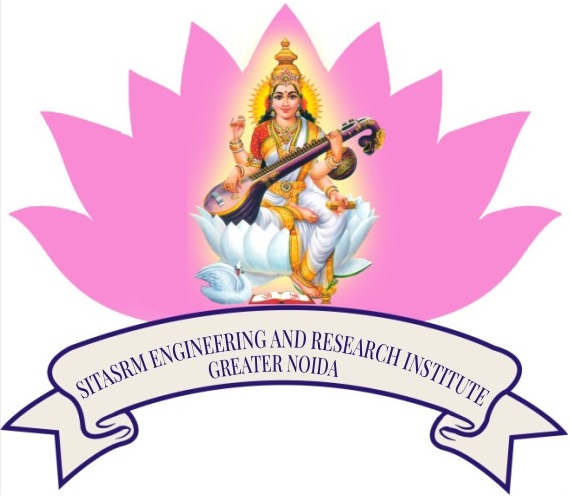 SITASRM ENGINEERING & RESEARCH INSTITUTE
SITASRM ENGINEERING & RESEARCH INSTITUTE
 SITASRM ENGINEERING
SITASRM ENGINEERING & RESEARCH INSTITUTE

SITASRM ENGINEERING & RESEARCH INSTITUTE
Menu
The Power of Engineering Networking: Building Connections for a Thriving B.Tech Career
 (1).jpg)
Introduction to Engineering Networking
Imagine your engineering career as a complex circuit board. Every component, every wire, plays a vital role. Your technical skills are the powerful processors, the robust memory. But what about the intricate pathways, the invisible currents that carry information and create opportunities? That's where the art of engineering networking comes in – it's the hidden wiring that supercharges your potential and unlocks connections you never knew existed.
Beyond just collecting business cards, true engineering networking is about forging genuine, mutually beneficial relationships. It connects you with peers, mentors, industry leaders, and potential employers. It opens doors to opportunities. It provides invaluable insights. For B.Tech pursuers, aspiring engineers, or seasoned professionals, understanding and leveraging the power of engineering networking is a vital investment.
Why is Engineering Networking So Crucial?
Let's break down the tangible benefits. Networking for engineers is an indispensable part of a professional toolkit.
-
Unearthing Hidden Opportunities: Not all job openings are advertised publicly. Many positions, internships, and project collaborations are filled through referrals. Your connections can alert you to these "hidden" opportunities. This is a core benefit of effective engineering networking.
-
Gaining Industry Insights and Knowledge: The engineering field is constantly innovating. Engineering networking connects you with individuals at the forefront of new technologies. These conversations provide insights beyond textbooks. You learn about industry shifts, emerging technologies (like AI, IoT, Blockchain), and future skill demands. This knowledge is crucial for anyone seeking freshers jobs in networking or any other engineering discipline.
-
Mentorship and Guidance: Connecting with experienced professionals offers invaluable mentorship. They can guide your career path. They provide advice on challenges. Mentors share their experiences, helping you avoid pitfalls. This guidance is a significant advantage of strong engineering networking.
-
Enhancing Problem-Solving and Collaboration: Engineering often involves complex problems. Your network can be a resource for bouncing ideas. You can seek advice or find collaborators for projects. This collective intelligence strengthens your problem-solving abilities. It highlights the collaborative aspect of engineering networking.
-
Boosting Your Professional Visibility: Being known within your industry is key. Active engineering networking raises your profile. People recognize your expertise and dedication. This visibility can lead to speaking engagements, panel discussions, or even media features.
Practical Strategies for Effective Engineering Networking
Building a robust network doesn't happen overnight. It requires effort and a strategic approach.
-
Start Early, Start Smart:
Don't wait until job hunting begins. For B.Tech students and freshers, attending industry events while still in college is vital. Join student chapters of professional organizations like IEEE or ASME. These offer excellent networking for engineers opportunities from day one.
-
Leverage Online Platforms Strategically:
-
LinkedIn: This is your primary professional hub. Create a comprehensive profile. Highlight your projects, skills, and aspirations. Connect with alumni, recruiters, and professionals in your target companies. Engage with industry content. Participate in relevant groups. This platform is a cornerstone for engineering networking.
-
GitHub/Stack Overflow: For software and IT engineers, these platforms showcase your coding abilities. They also allow interaction with the developer community. This is a form of active engineering networking through contribution.
-
Attend Industry Events, Conferences, and Webinars:
These are prime locations for face-to-face interaction. Prepare an elevator pitch about yourself. Have specific questions ready. Be genuinely interested in others' work. Follow up with a personalized message. Many organizations host events specifically for networking for engineers.
-
Connect with Your Alumni Network:
Your college alumni are a valuable resource. They understand your background. They are often willing to help. Reach out for informational interviews. Ask for advice or potential leads for freshers jobs in networking or other roles.
-
Volunteer for Projects or Committees:
Getting involved in industry associations or open-source projects expands your circle. It showcases your commitment and skills. This active participation leads to natural engineering networking.
-
Master the Art of Follow-Up:
A connection is only as strong as its follow-up. Send a personalized thank-you message after meeting someone. Share relevant articles or opportunities with your contacts. Nurture these relationships over time. Consistency is key in effective engineering networking.
-
Be Authentic and Offer Value:
Networking is a two-way street. Don't just ask for favors. Be willing to share your knowledge. Offer assistance where you can. Genuine connections are built on mutual respect and value. This approach strengthens your engineering networking efforts.
Beyond the Job Hunt: A Lifelong Skill
Engineering networking isn't just about landing your first job or finding freshers jobs in networking. It's a continuous process that supports lifelong learning and career advancement. Your network evolves with you. It provides support during career transitions. It offers new perspectives as technology changes.
Embrace engineering networking as an essential skill. It will open doors, foster learning, and ultimately empower you to build a resilient and rewarding career in the vast world of engineering. Start cultivating your connections today – your future self will thank you.















































